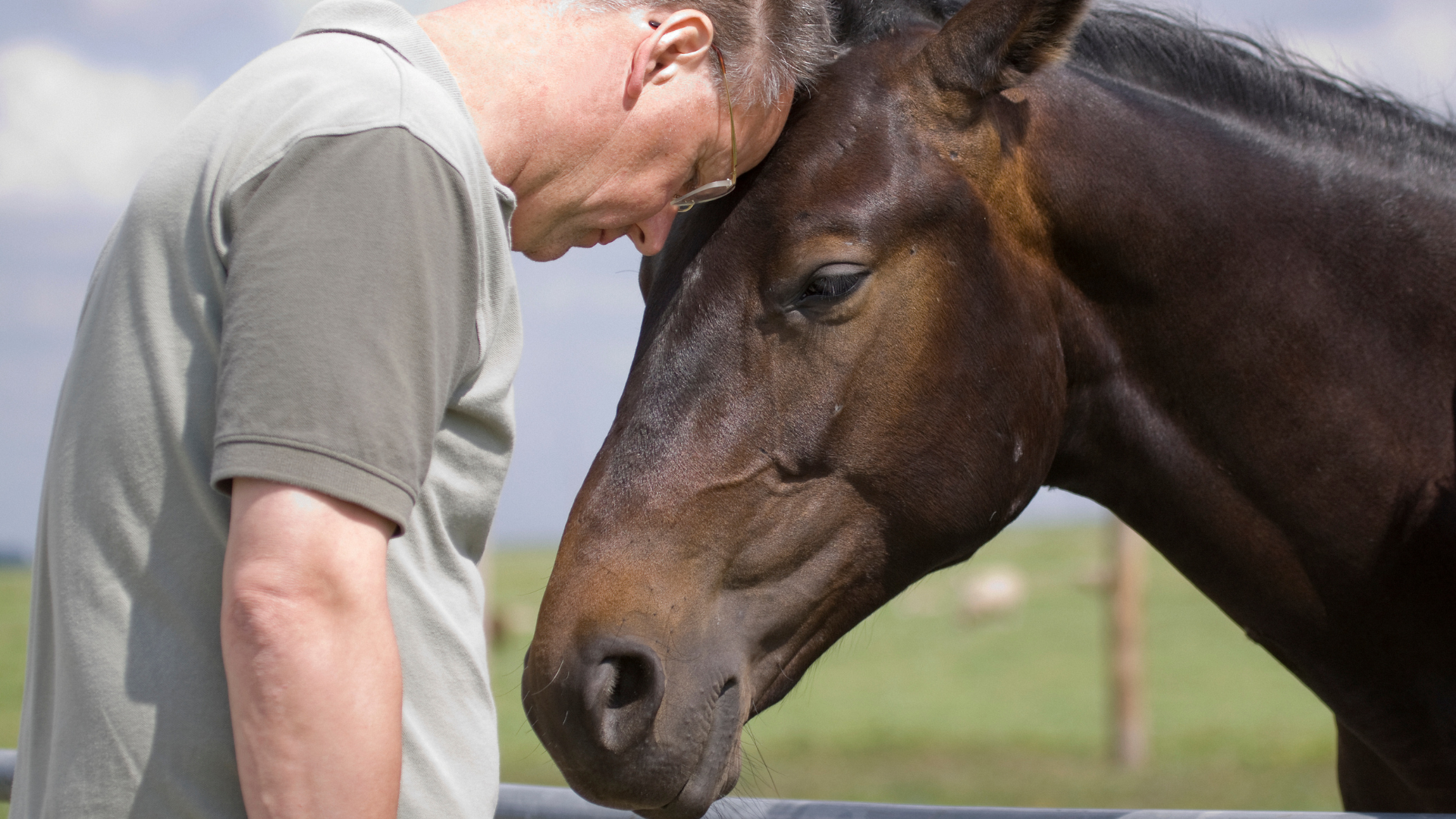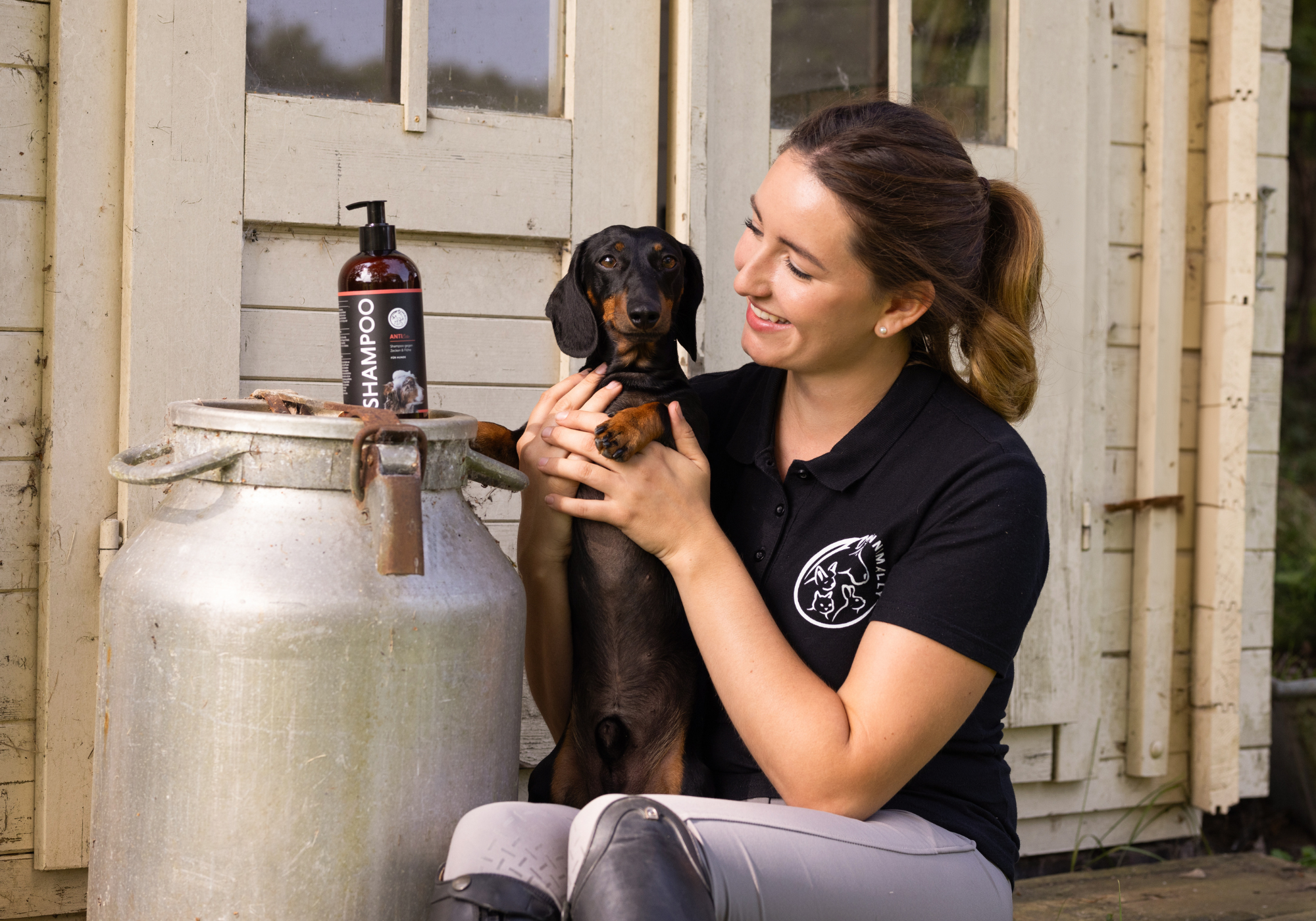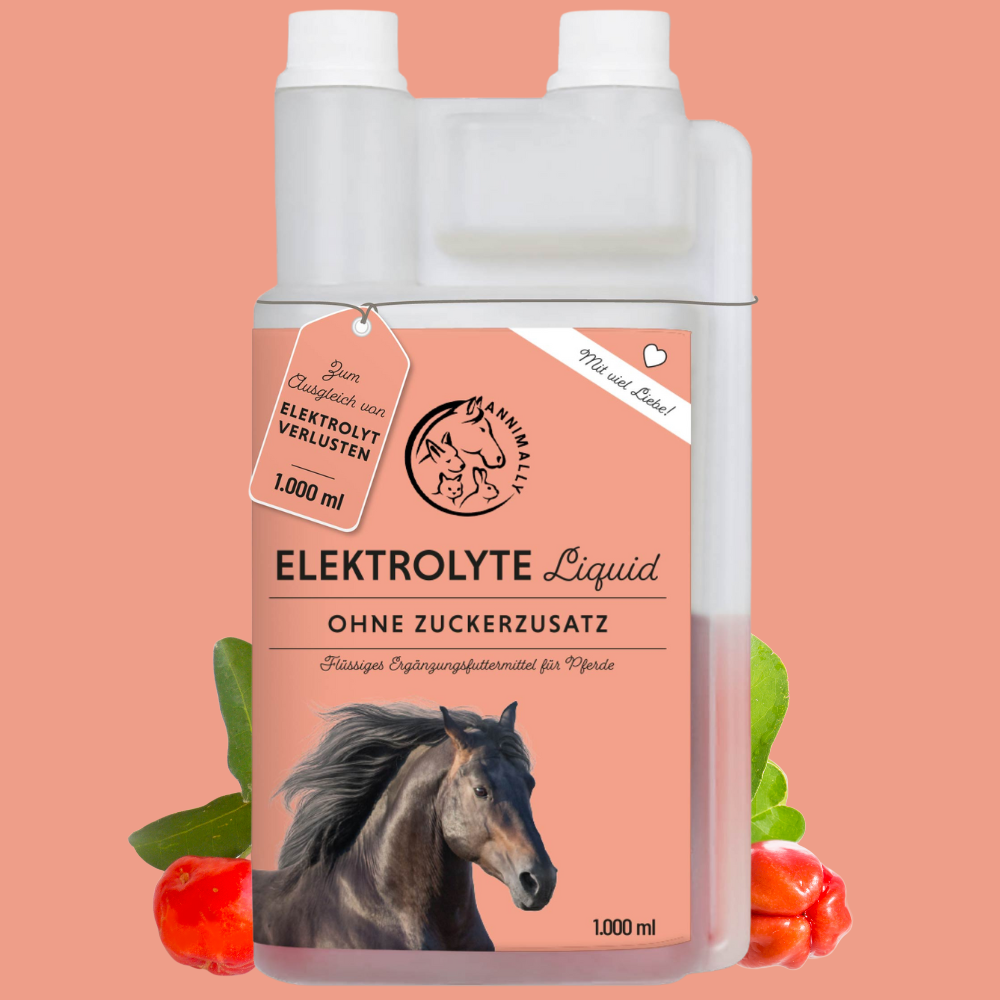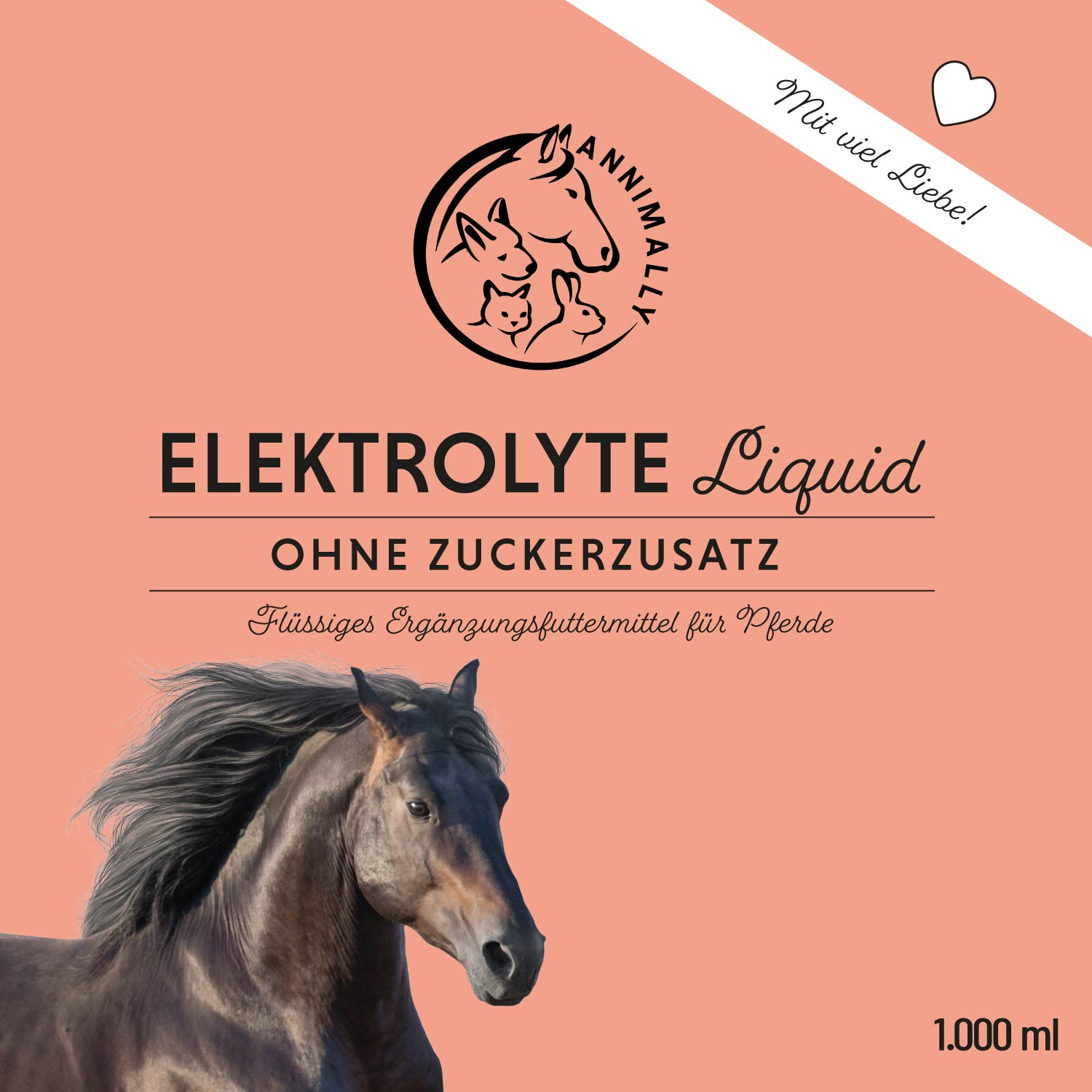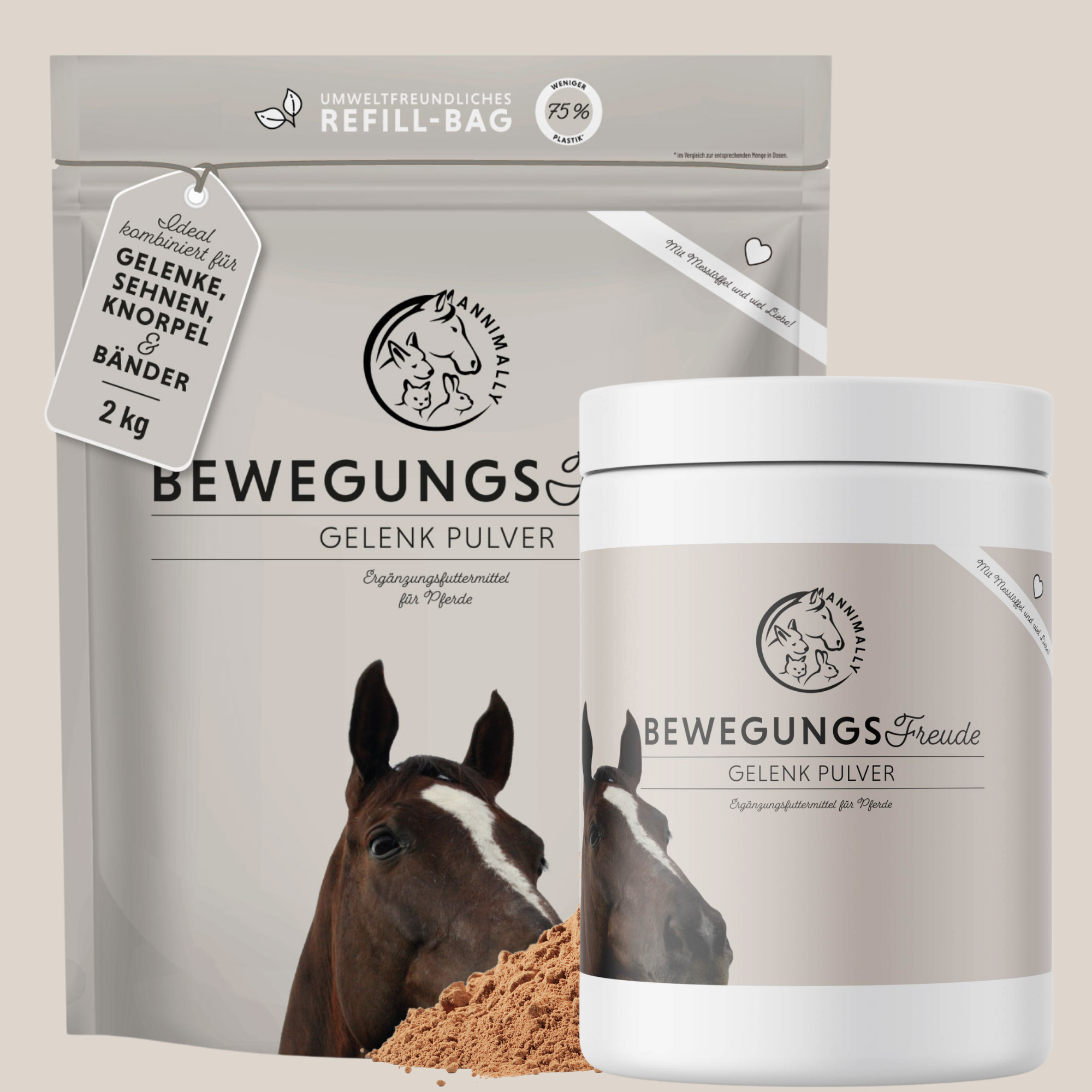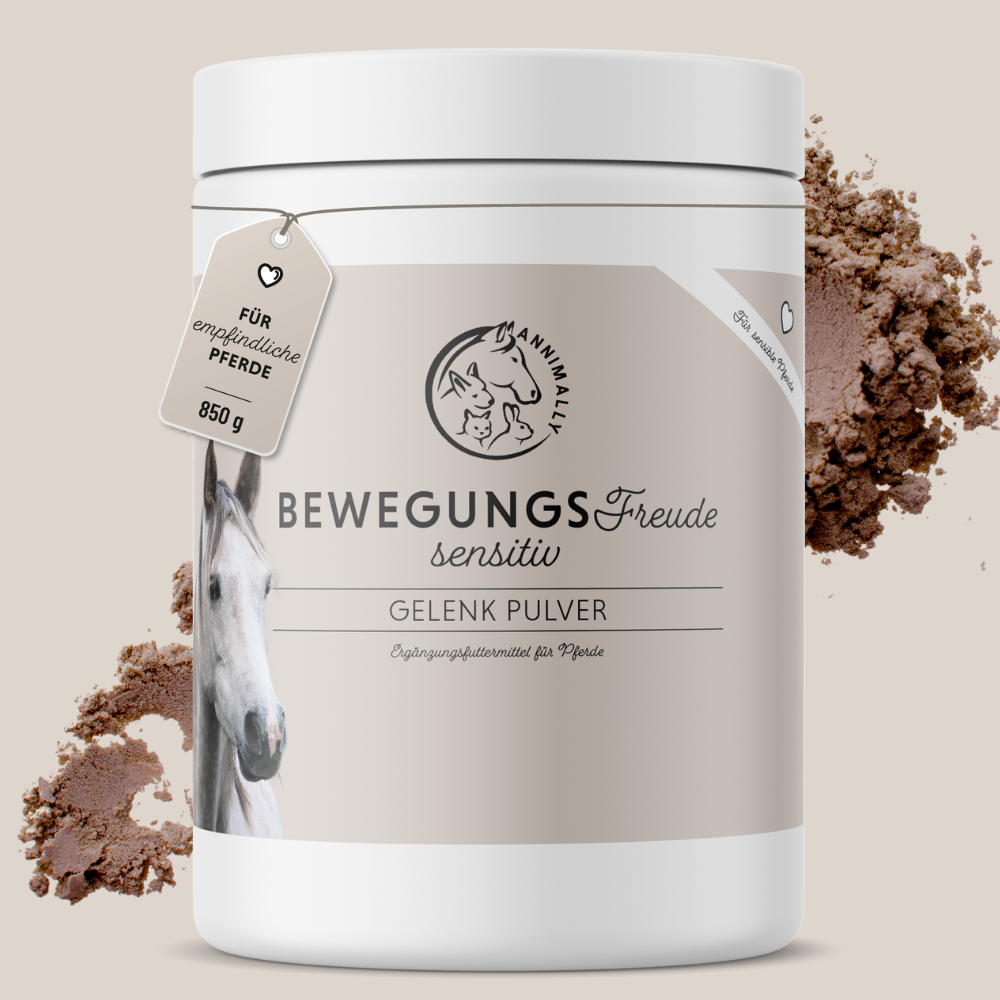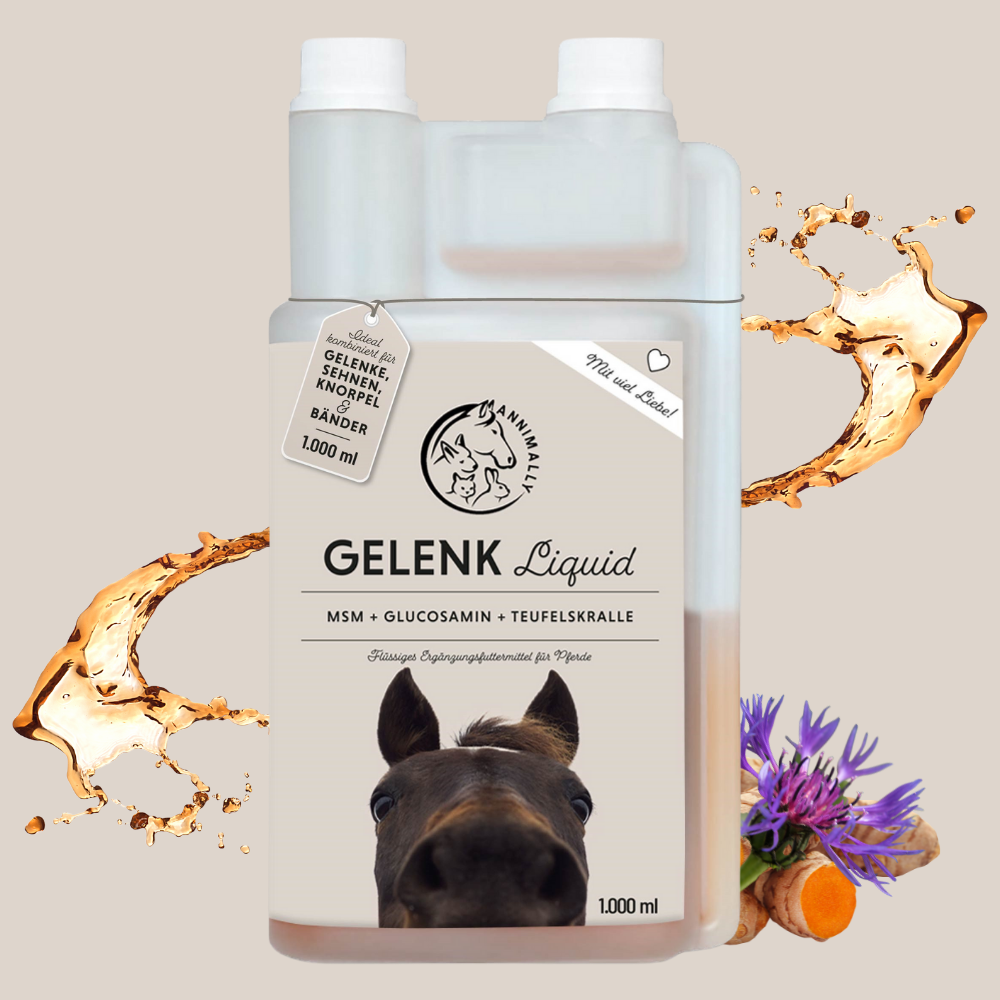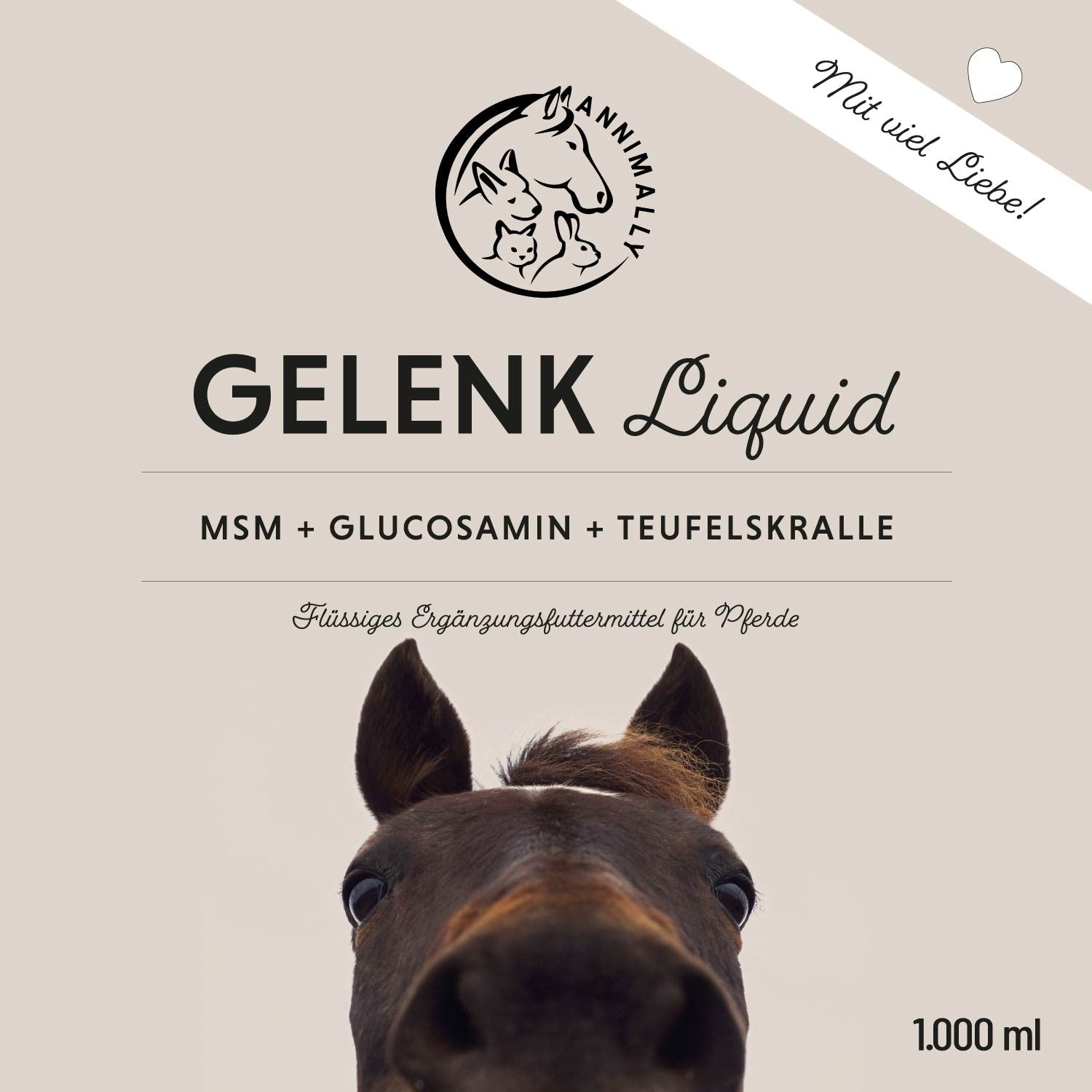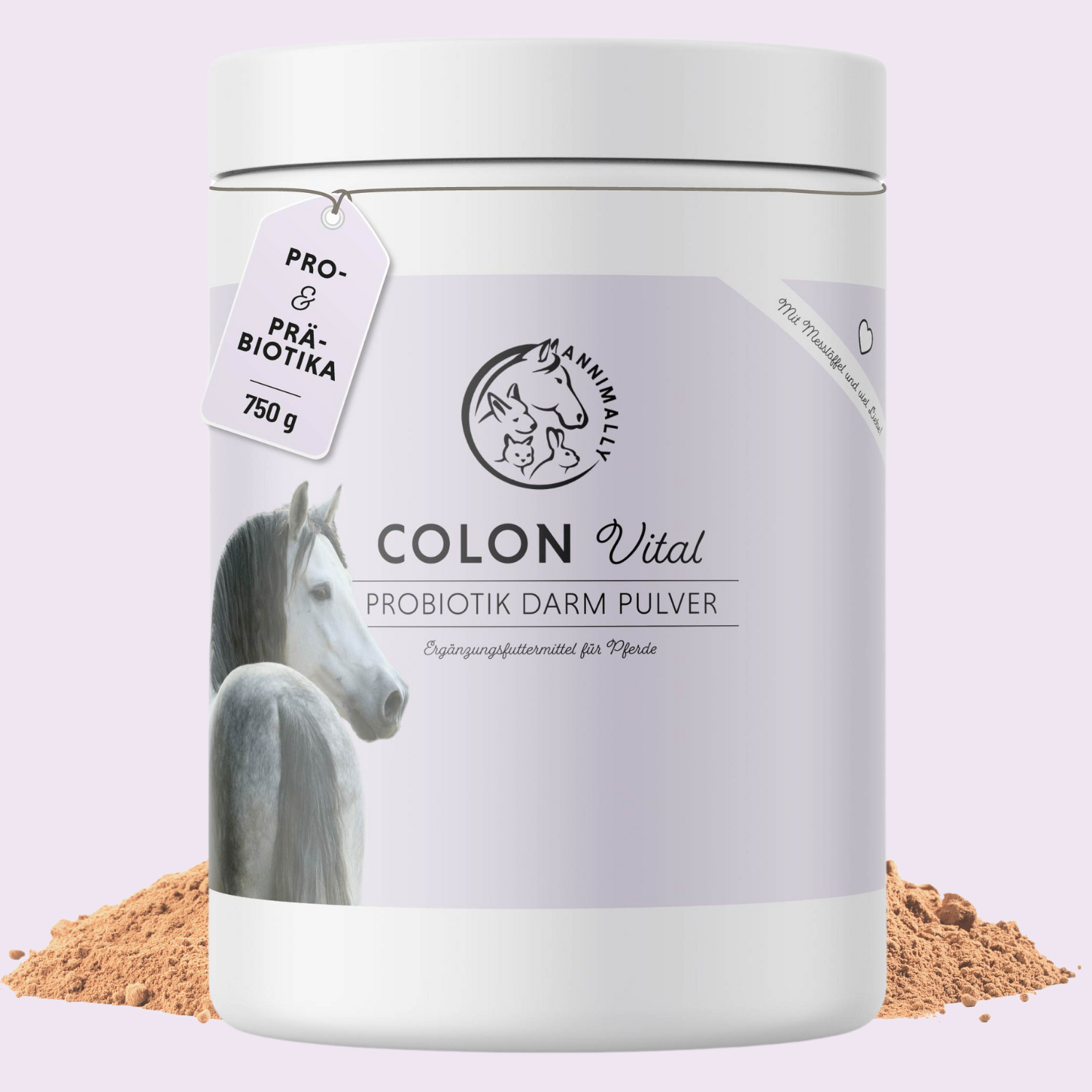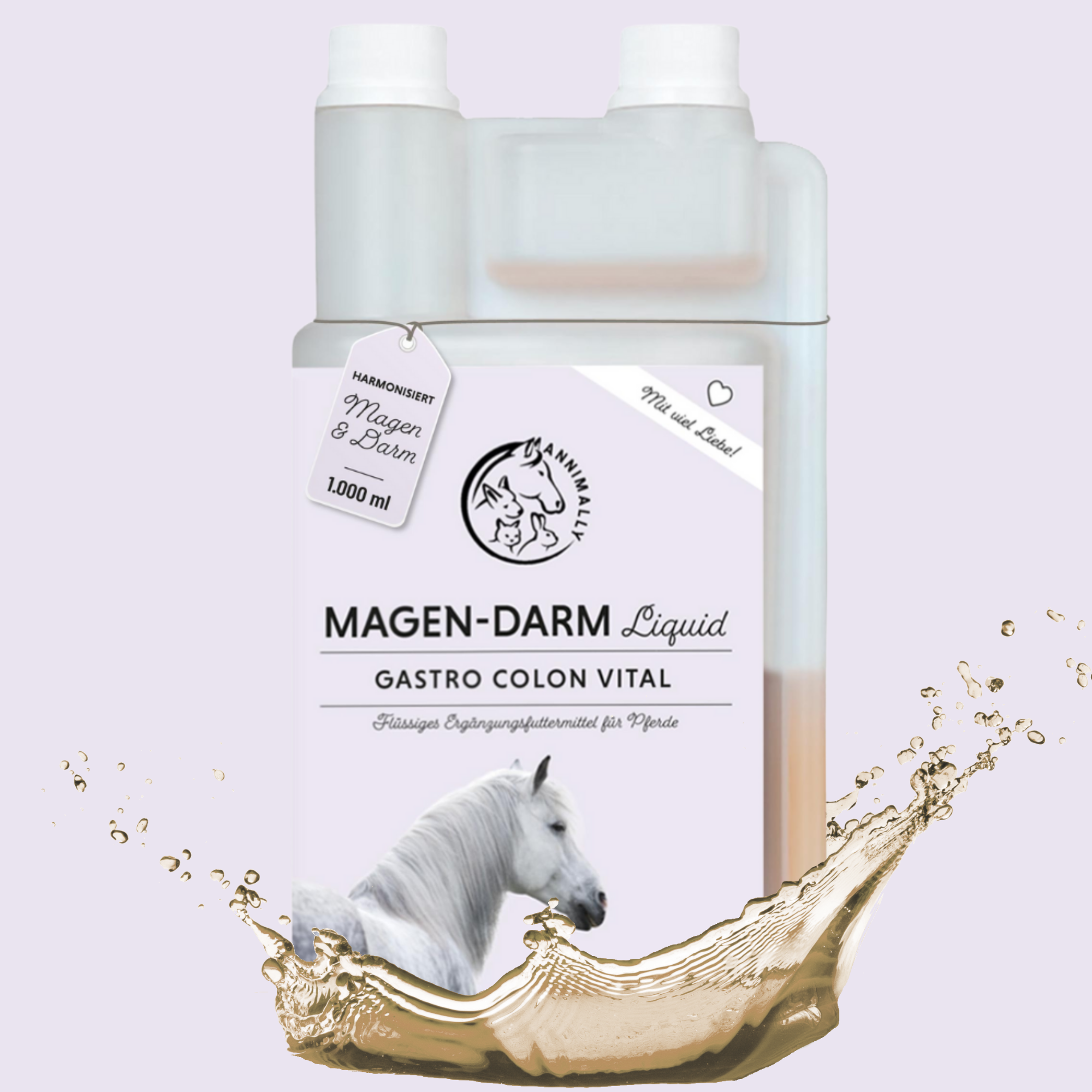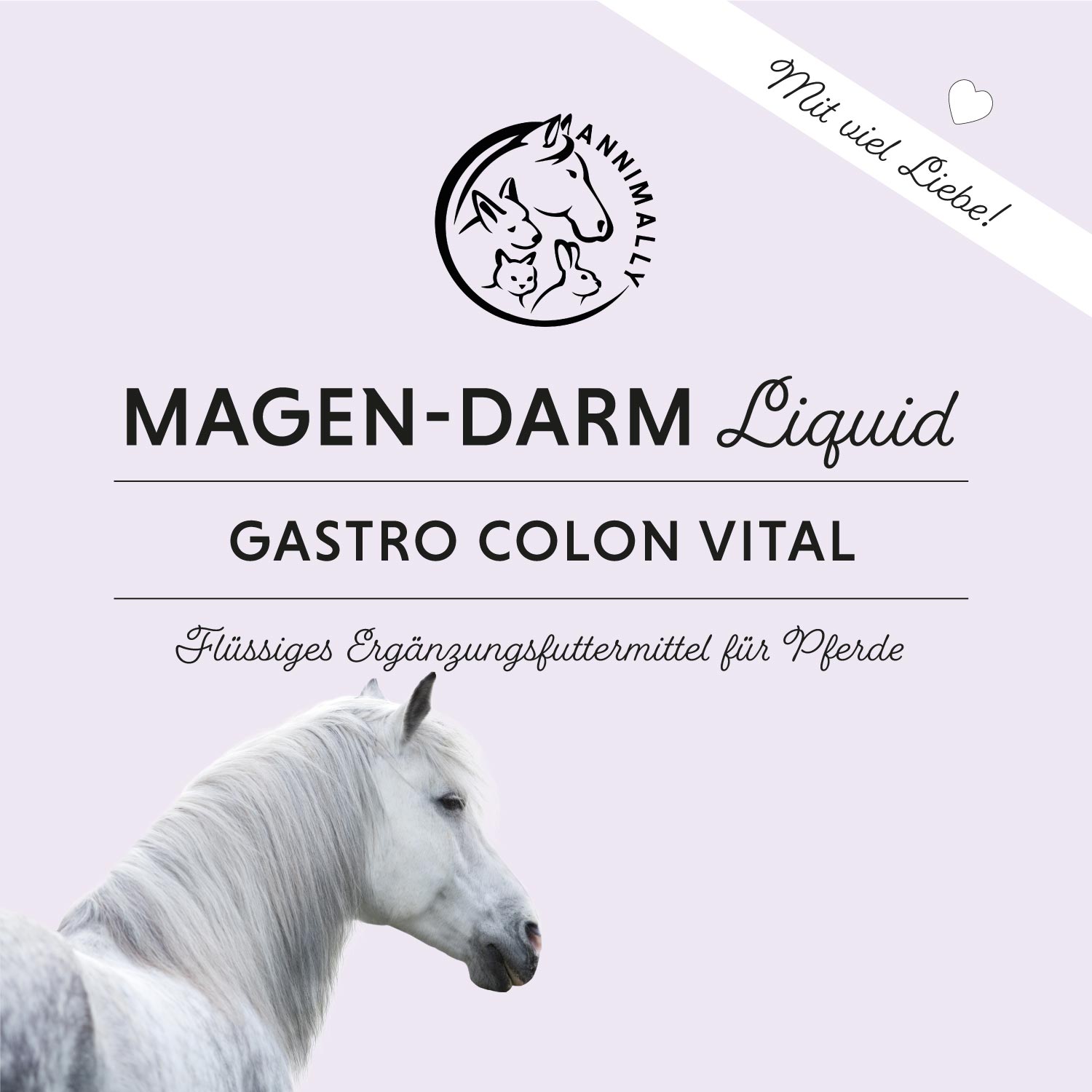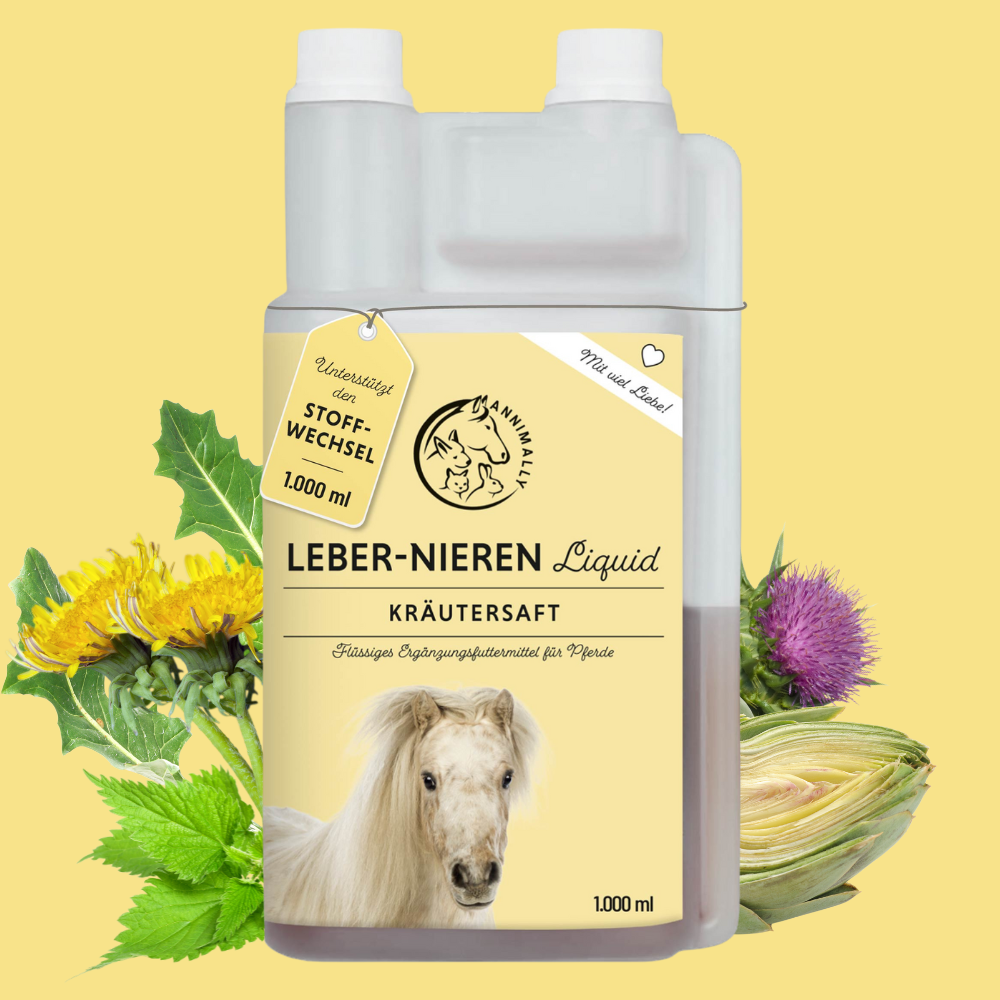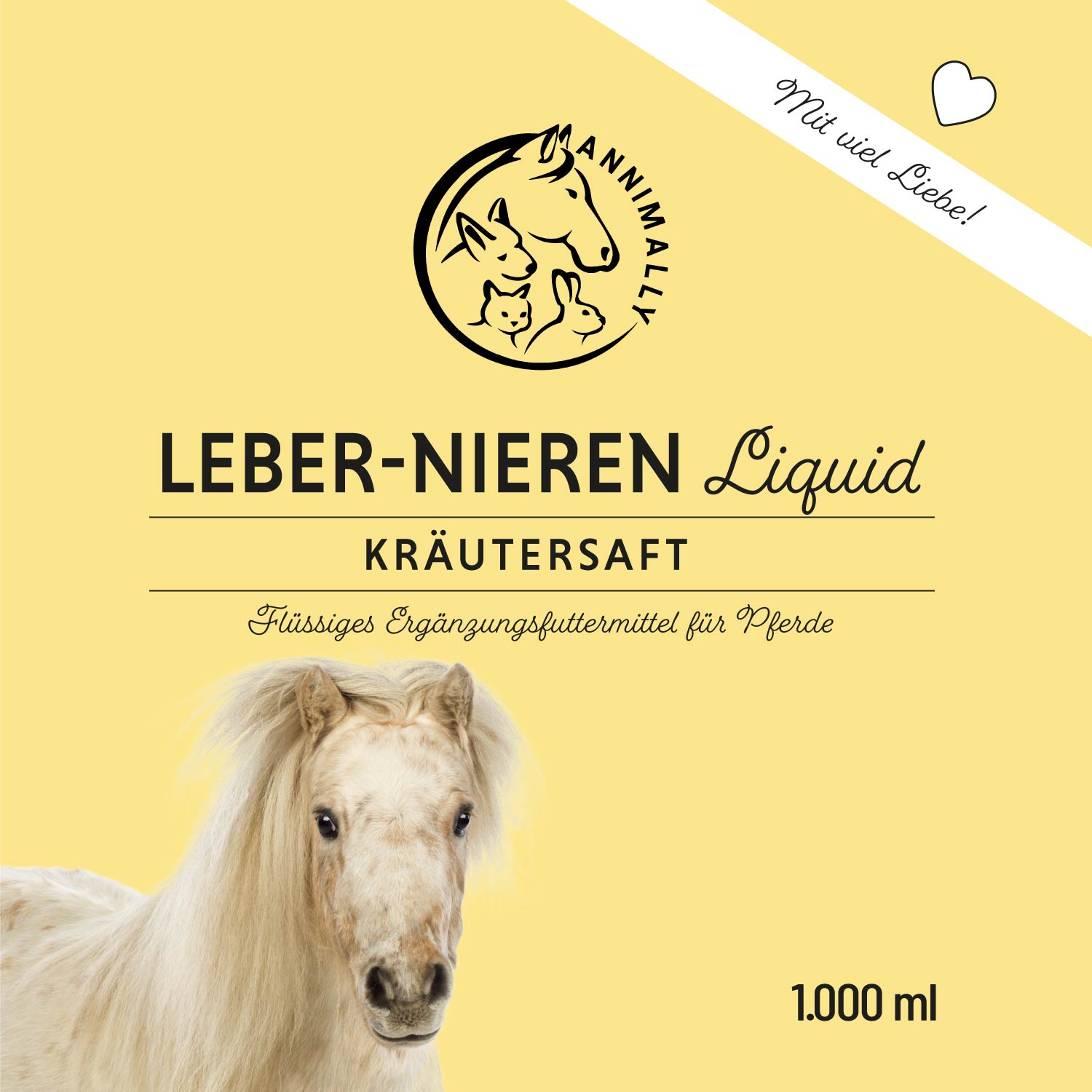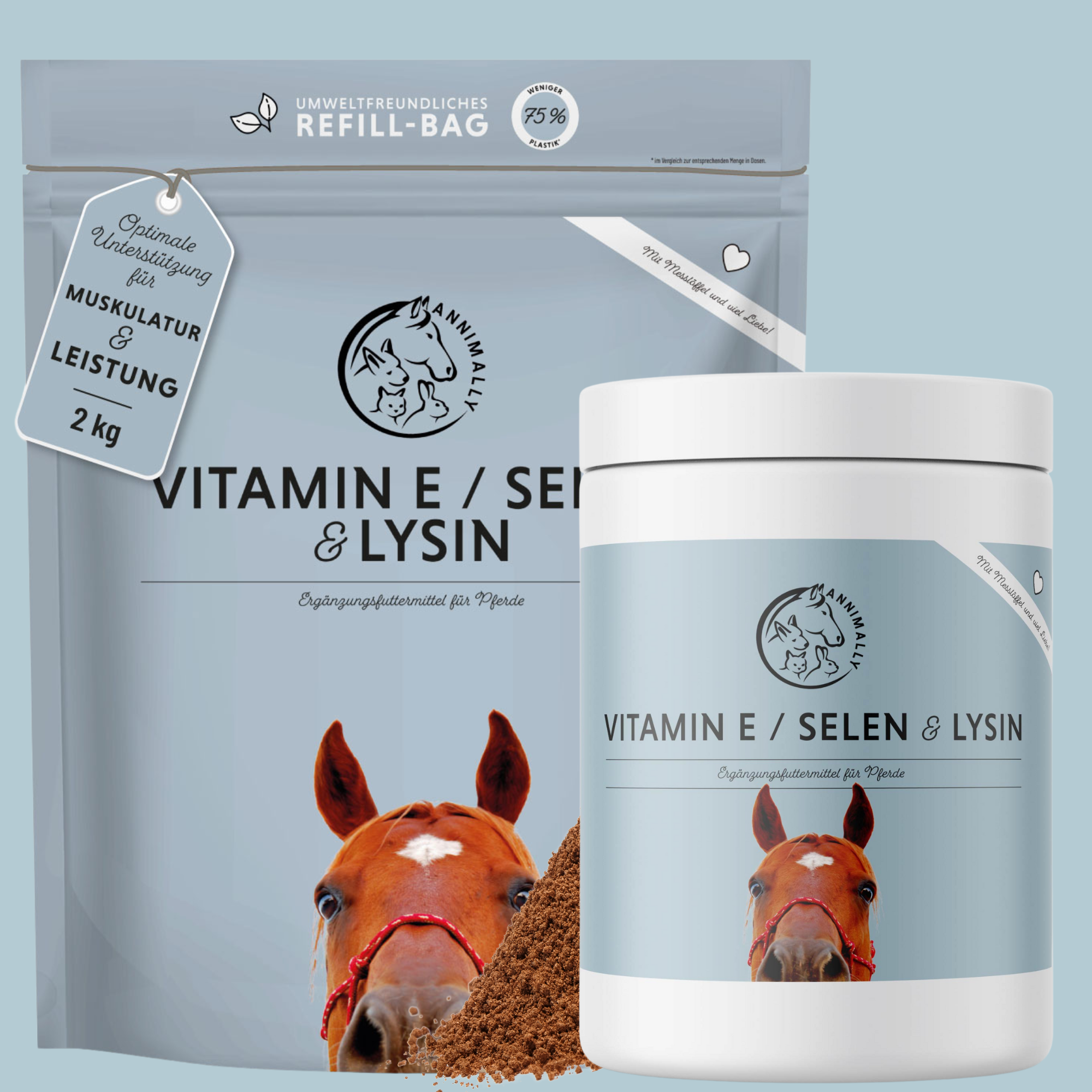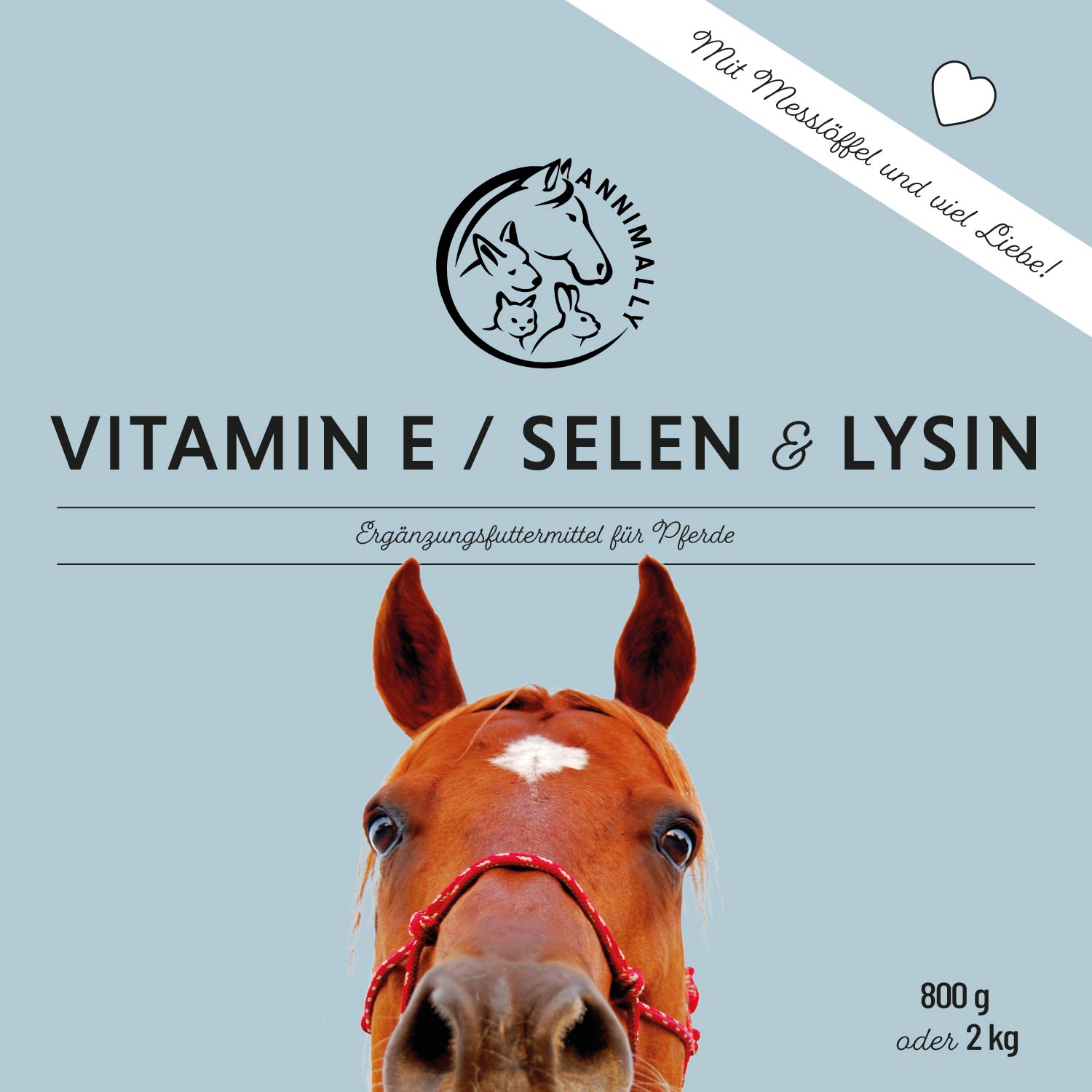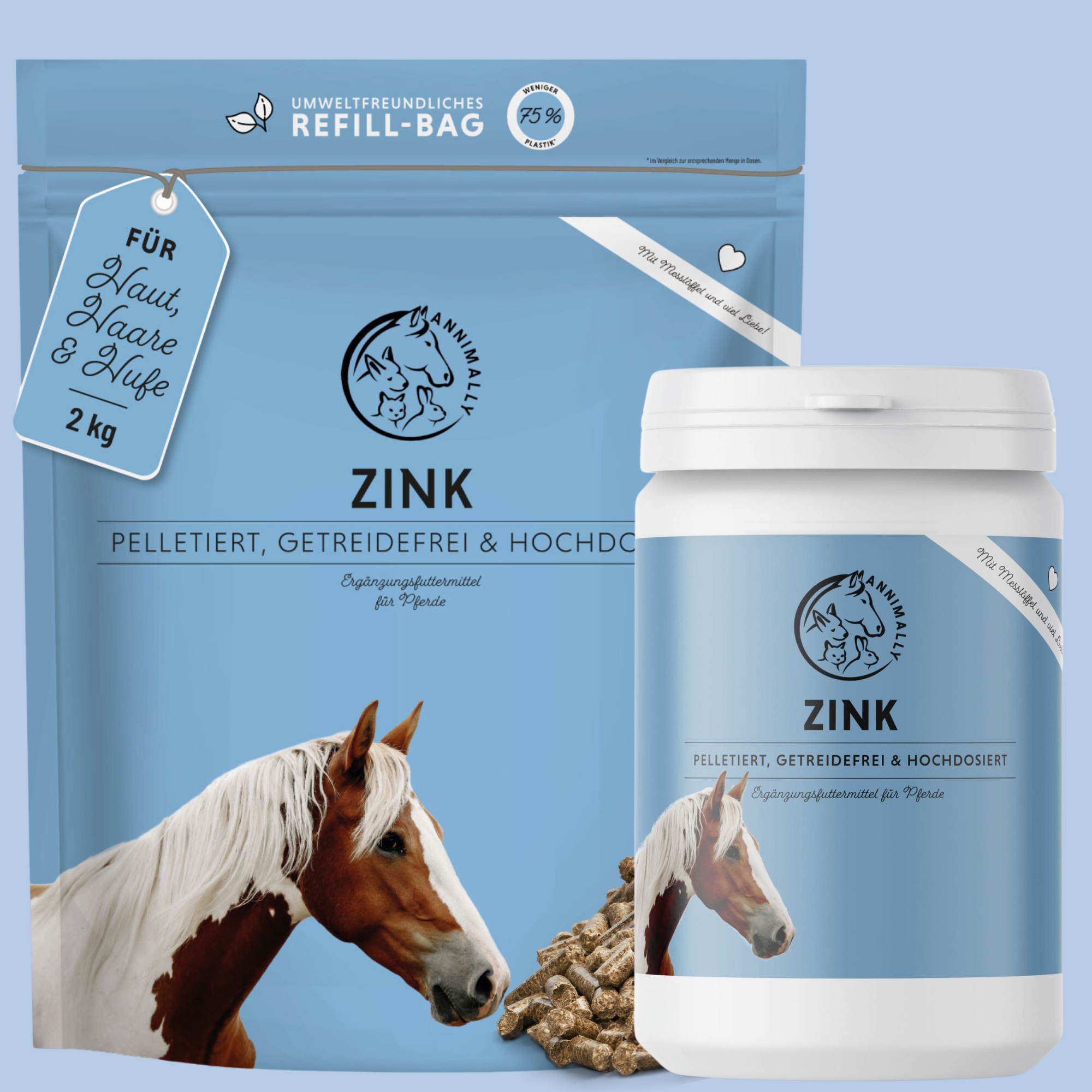Potassium in horses – Why it is so important for health, performance and regeneration
If you're familiar with horse feeding, you've probably come across the term "potassium in horses." But what exactly is potassium, what functions does it perform in your horse's body, and how do you recognize a potassium deficiency?
In this article, we will show you the role potassium plays in the organism, how it interacts with other electrolytes such as sodium, chloride, magnesium and calcium, and what you should consider when feeding to optimally meet your horse's needs.
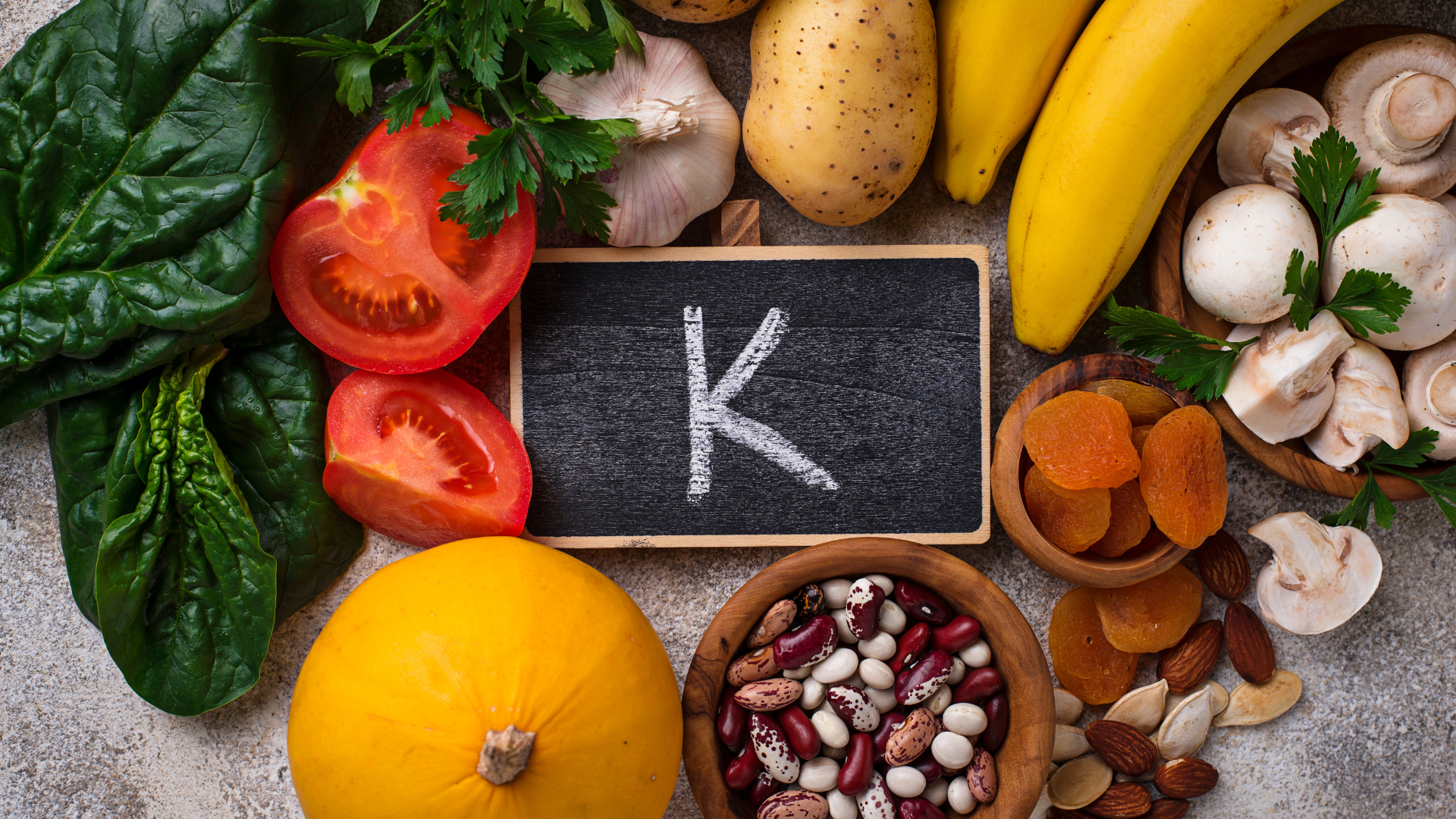
What is potassium and what functions does it perform in horses?
Potassium is an essential mineral found as an electrolyte in almost all body cells—especially muscle cells. There, potassium plays a key role in stimulus transmission, acid-base balance, energy supply, and metabolism.
Without sufficient potassium, muscle and nerve activity cannot function smoothly – this particularly affects horses that work regularly, whether in sport, recreation, or breeding. A balanced electrolyte balance is therefore crucial for your horse's performance and recovery.
How does a horse lose potassium?
Potassium is primarily lost through sweat—that is, precisely when your horse sweats, for example, during physical work, in high temperatures, or under stress. Excessive electrolyte loss can also occur with certain illnesses, such as diarrhea or kidney problems.
A particular problem: While sodium and chloride (also important electrolytes) are usually insufficient in hay and must be supplemented, potassium is generally present in sufficient quantities in hay – but the need increases dramatically in cases of heavy sweating or metabolic problems. This can then lead to a potassium deficiency in the horse.
How do you recognize a potassium deficiency in a horse?
A potassium deficiency can manifest itself in a variety of ways. The symptoms are often rather non-specific, which is why it may be helpful to have a blood test done to monitor electrolyte levels. Typical signs of a deficiency can include:
-
Muscle tremors or cramps
-
Inertia or reduced willingness to perform
-
Limited freedom of movement
-
Constipation or digestive problems
-
Irregular heartbeat
-
General weakness
In severe cases, a severe potassium deficiency can even become life-threatening. This is because potassium is essential for the function of enzymes that regulate metabolism and nerve conduction in cells.
Potassium and acid-base balance in horses
Another exciting area where potassium plays a key role is acid-base balance. Many horses suffer – often unnoticed – from latent hyperacidity, for example, due to stress, improper feeding, or strenuous physical exertion. In such cases, the body must counteract this – and this is where potassium comes into play.
Together with other salts and minerals, potassium helps stabilize the pH and balance excess acidity. A balanced acid-base balance is important for muscle cell function and the horse's overall health.
How can you meet your potassium needs?
The potassium content in forage – especially in hay – is generally quite high, especially in young or heavily fertilized grass. Nevertheless, in certain cases, the natural intake is insufficient. Targeted supplementation can be particularly beneficial for sport horses, those with heavy sweating, or during periods of increased metabolic demand (e.g., illness or shedding).
There are special electrolyte supplements tailored to the needs of horses. When choosing, make sure they contain not only sodium and chloride, but also potassium and, ideally, magnesium. This combination optimally supports balancing after sweating.
When is potassium supplementation particularly important?
Adding potassium is especially useful when:
-
Your horse works regularly or intensively
-
It sweats heavily, e.g. in heat, training or transport
-
There is an illness or a deficiency of electrolytes
-
Suffers from recurring muscle problems
-
A potassium deficiency was detected in the blood count
There may also be an increased need for electrolytes during stressful times – such as when changing stables or during the competition season.
Conclusion: Potassium – An often underestimated mineral in horses
Potassium is a true all-rounder in your horse's body weight – from conducting stimuli to muscle function and regulating acid-base balance. A balanced electrolyte balance is crucial for health, performance, and regeneration – especially for horses subjected to athletic demands or stress.
If you take a closer look at the topic and regularly monitor your horse's parameters, you can identify many problems early and counteract them with the right feeding. Potassium, along with other electrolytes, is a valuable aid in this regard.
Pay attention to what your horse shows you and always remember: The right balance in the body is the key to a healthy and performance-oriented horse.
